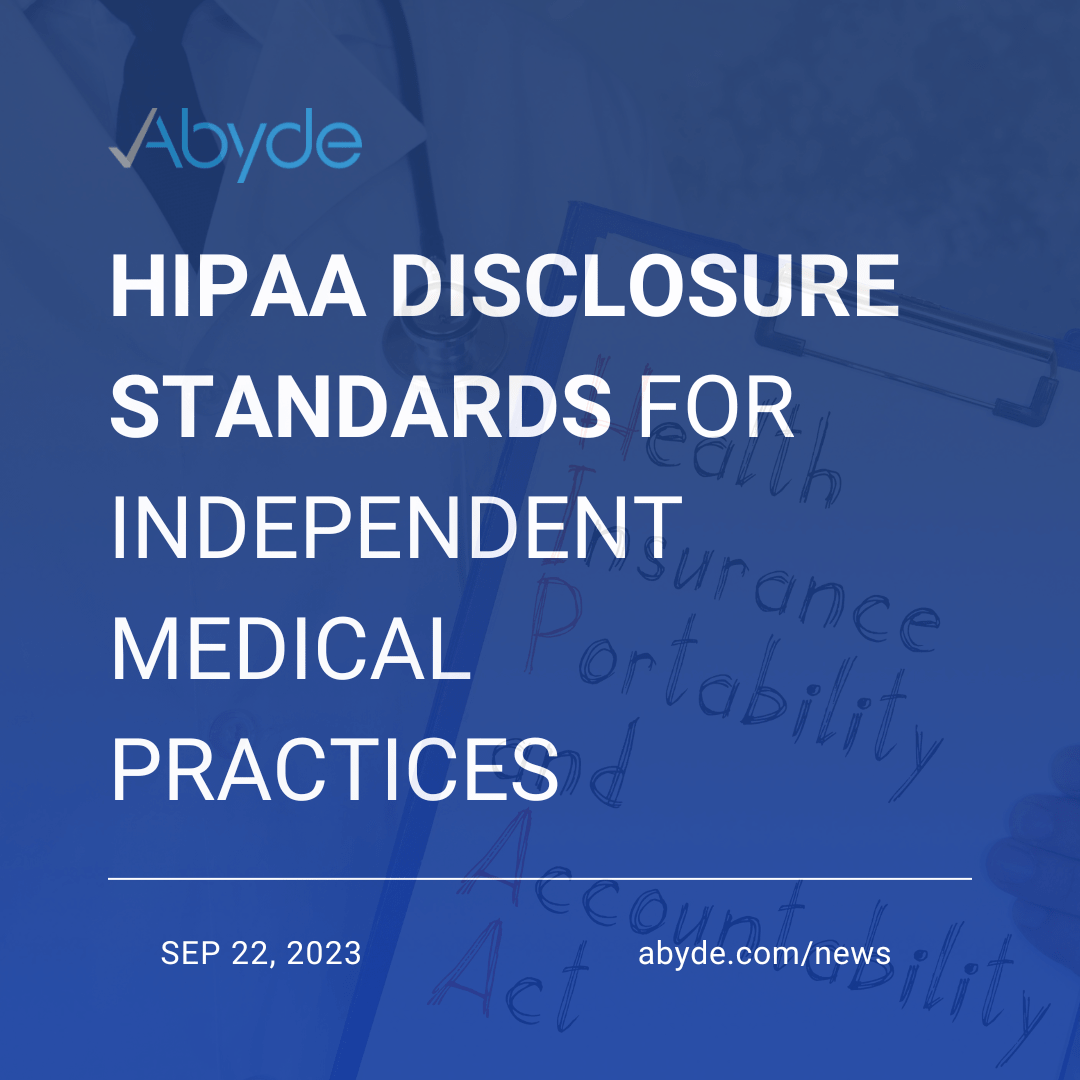
Navigating the complexities of HIPAA (Health Insurance Portability and Accountability Act) is essential for independent medical practices. This federal law primarily protects the privacy of patients’ health information, specifically the Protected Health Information (PHI).
The HIPAA Privacy Rule sets the foundation for PHI protection, stipulating when and how an independent medical practice can share this information without needing explicit consent from patients. Here’s a breakdown for clarity:
1. Treatment, Payment, and Healthcare Operations (TPO):
For independent medical practitioners:
- Treatment: A physician in a solo practice might share a patient’s PHI with a specialist for further diagnosis or treatment.
- Payment: PHI can be disclosed to insurance companies to confirm patient coverage and settle bills.
- Healthcare Operations: This covers daily activities like administrative tasks, quality assessment, and other patient care-related issues.
2. Consent-Based Disclosures:
Individuals can grant written consent to share their PHI:
- This consent must be detailed, informed, and revocable at any point by the patient.
- For instance, patients might authorize sharing their medical data with a third-party app or for specific clinical research.
3. Public Interest and Benefit Activities:
There are situations where PHI can be shared for the broader public interest:
- Disease Control: An independent medical practice might need to share PHI regarding communicable diseases with public health departments.
- Fraud and Abuse Prevention: Practices can disclose PHI to mitigate potential healthcare fraud or any form of abuse.
- Public Safety: If a patient poses a threat, their PHI might be shared to ensure the safety of others.
- Legal Requirements: PHI can be disclosed during legal proceedings or in response to judicial orders.
- Research: Sometimes, PHI is pivotal for public interest-based research, even without direct patient consent.
HIPAA Disclosure Scenarios for Independent Practices:
- A general practitioner might share a patient’s health details with a physiotherapist to ensure coordinated care.
- The practice may share medical records with health insurers for payment verification.
- If a patient under the care of a solo practitioner contracts a contagious illness, this might be reported to the public health department for broader safety reasons.
- The health records of a deceased patient might be shared with close family members, especially if they were involved in the patient’s care.
Understanding these disclosure standards ensures that independent medical practices maintain their patients’ trust and compliance with federal regulations.
Abyde: HIPAA and OSHA Compliance Software
Abyde is a cloud-based software platform that helps healthcare organizations achieve and maintain compliance with HIPAA and OSHA regulations. Abyde provides a comprehensive suite of tools and resources to help organizations with risk assessments, policy and procedure development, employee training, and documentation.
Abyde’s compliance software can help organizations:
- Conduct risk assessments to identify and mitigate security risks
- Implement and maintain HIPAA-compliant policies and procedures
- Train employees on HIPAA privacy and security requirements
- Document compliance efforts to demonstrate compliance with regulators
Abyde’s software is easy to use and can be customized to meet the specific needs of any healthcare organization. Abyde also offers a variety of support resources, including online training, webinars, and 24/7 customer support.
How Abyde can help healthcare organizations with HIPAA disclosure
Abyde’s HIPAA compliance software can help healthcare organizations with HIPAA disclosure by providing tools and resources to help them:
- Identify and document all disclosures of PHI
- Ensure that all disclosures of PHI are compliant with HIPAA regulations
- Respond to HIPAA disclosure requests in a timely and efficient manner
Abyde’s software can also help healthcare organizations to:
- Develop and implement policies and procedures for HIPAA disclosure
- Train employees on HIPAA disclosure requirements
- Monitor and audit HIPAA disclosure activities
By using Abyde’s HIPAA compliance software, healthcare organizations can help ensure that all PHI disclosures comply with HIPAA regulations and that patient privacy is protected.
Conclusion
HIPAA is a complex law, but it is crucial to understand the basics of HIPAA privacy and disclosure rules. Understanding these rules can protect your PHI and help ensure your healthcare information is handled appropriately.
How Abyde can help you comply with the three standards of HIPAA disclosure;
- Abyde’s HIPAA compliance software can help you comply with all three standards of HIPAA disclosure:
- TPO disclosures
- Abyde can help you to identify and document all TPO disclosures of PHI. Abyde can also help you ensure all TPO disclosures comply with HIPAA regulations.
Contact us today for a complimentary consultation by clicking HERE.
Links to appropriate resources
- HIPAA Privacy Rule: https://www.hhs.gov/hipaa/for-professionals/privacy/index.html
- HIPAA Security Rule: https://www.hhs.gov/hipaa/for-professionals/security/index.html
- HIPAA Breach Notification Rule: https://www.hhs.gov/hipaa/for-professionals/breach-notification/index.html
- Office for Civil Rights (OCR) website: https://www.hhs.gov/hipaa/for-professionals/privacy/index.html
- Abyde: www.abyde.com